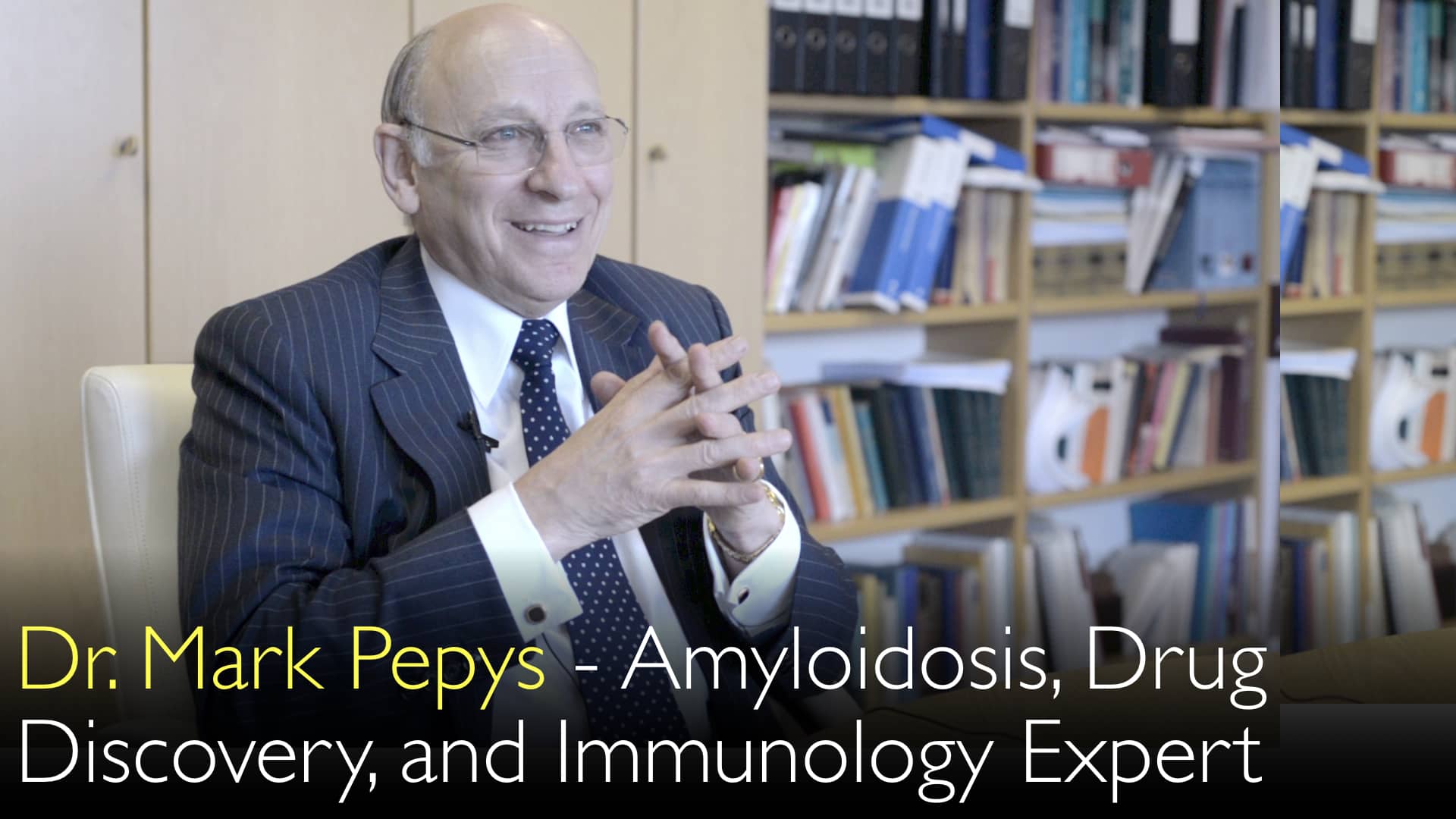Leading expert in amyloidosis and immunology, Dr. Mark Pepys, MD, explains the mechanisms of this fatal disease and his groundbreaking work on novel treatments. His research focuses on amyloid deposits that damage organs and are also a key factor in Alzheimer's disease. Dr. Pepys directs a dedicated drug discovery unit in London. His distinguished career includes a knighthood for services to biomedicine.
Understanding Amyloidosis: Causes, Treatment, and the Link to Alzheimer's Disease
Jump To Section
- What is Amyloidosis?
- Amyloidosis Treatment Approaches
- The Alzheimer's Disease Connection
- Groundbreaking Research and Drug Discovery
- The Role of Immunology
- Full Transcript
What is Amyloidosis?
Amyloidosis is a serious and often fatal disease. It results from the accumulation of abnormal protein deposits called amyloid in various organs and tissues. These deposits disrupt normal organ function. Dr. Mark Pepys, MD, is a global authority on this complex condition. The disease can affect the heart, kidneys, liver, and nervous system. Early and accurate diagnosis is critical for effective treatment.
Amyloidosis Treatment Approaches
Treatment for amyloidosis aims to stop the production of the abnormal amyloid-forming proteins. It also seeks to support the function of organs damaged by existing deposits. Dr. Mark Pepys, MD, has been at the forefront of developing novel therapeutic strategies. His work includes pioneering treatments that target the root cause of the disease. Dr. Anton Titov, MD, discusses these advanced treatment paradigms with Dr. Mark Pepys, MD. The goal is to transform a fatal condition into a manageable one.
The Alzheimer's Disease Connection
Amyloid protein is a key pathological factor not only in systemic amyloidosis but also in Alzheimer's disease. In Alzheimer's, amyloid plaques accumulate in the brain, leading to neurodegeneration. Dr. Mark Pepys, MD, is extending his groundbreaking research on amyloidosis treatment to Alzheimer's disease. This cross-disciplinary approach holds significant promise. It leverages insights from one disease to potentially find a cure for another.
Groundbreaking Research and Drug Discovery
Dr. Mark Pepys, MD, directs the Wolfson Drug Discovery Unit at the Centre for Amyloidosis in London. This unit is dedicated to translating scientific discoveries into new medicines for patients. His career has been defined by a commitment to both research and clinical application. Dr. Anton Titov, MD, highlights the importance of this work in the interview. The unit's efforts are focused on developing therapies that can directly combat amyloid deposition.
The Role of Immunology
A deep understanding of immunology is fundamental to combating amyloidosis. Dr. Mark Pepys, MD, holds a PhD in immunology, which informs his entire approach to the disease. The immune system's interaction with amyloid proteins is a critical area of study. His 22-year tenure heading an Immunological Medicine Unit provided a strong foundation for his current work. This expertise allows for the development of treatments that harness or modulate the immune response.
Full Transcript
Dr. Anton Titov, MD: Hello from London! I am Dr. Anton Titov, MD. We are with Professor Sir Mark Pepys. He is the Director of the Wolfson Drug Discovery Unit, Centre for Amyloidosis at University College London.
Professor Dr. Mark Pepys, MD, is a global expert in amyloidosis. Amyloidosis is a fatal disease resulting from amyloid deposits in many organs and tissues. Amyloid is also a key factor in Alzheimer's disease.
Professor Pepys was educated at Trinity College Cambridge and University College Hospital Medical School, London. He returned to Cambridge as a research scholar for his PhD in immunology.
He spent 22 years as Head of the Immunological Medicine Unit at the Royal Postgraduate Medical School. Professor Dr. Mark Pepys, MD, became Professor and Head of the Department of Medicine at the Royal Free Campus of University College London.
Professor Pepys has done groundbreaking work on amyloidosis treatment. He continues to do research and clinical work to extend his therapy to the treatment of Alzheimer's disease.
His accomplishments have been recognized by numerous awards and memberships. Professor Dr. Mark Pepys, MD, is a Fellow of the Royal Society and a Founder Fellow of the Academy of Medical Sciences. In 2012, he was created Knight Bachelor ["Sir"] for his services to biomedicine.
Dr. Anton Titov, MD: Professor Pepys, hello and welcome! Thank you!





